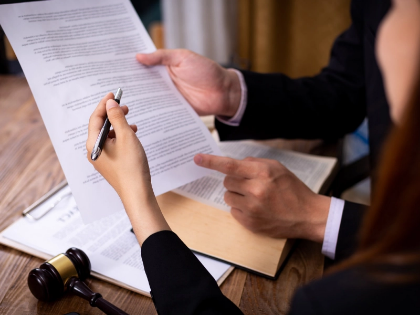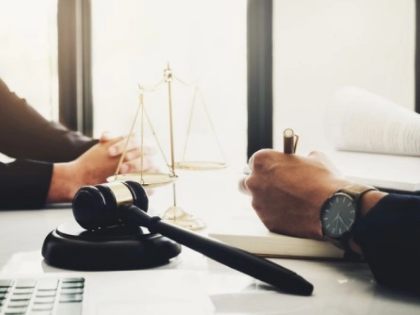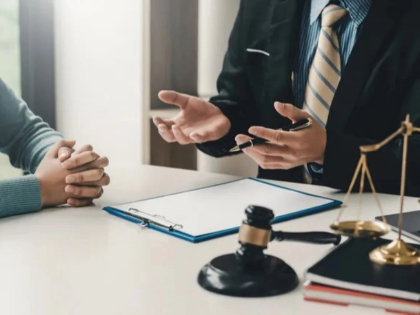Handling personal injury claims with the aid of a lawyer
A lawyer is a professional who represents individuals or organizations in court and provides advice on legal issues. They could also go by the names lawyer, solicitor, or barrister. Personal injury attorneys can assist wounded parties in obtaining just recompense for their medical expenses, missed wages, and psychological suffering. In addition, they have the ability to negotiate with insurance companies and, if needed, prosecute cases.
1. Compiling Proof

2. Discussion
 A crucial first step in personal injury claims is a legal consultation. It gives people information about their legal rights, the court system, and the possible merits of their claim.
It is also a good opportunity to talk about worries and inquiries regarding the case. For instance, it is crucial to inquire about costs and the methodology used to determine them.
This is also the time for people to keep records of all out-of-pocket expenses, medical bills, and correspondence with the insurance provider. This can ensure that future damages are taken into consideration and that the accident's real impact is fairly reflected in the final settlement. Maintaining a record detailing any medical interventions and days off from work due to the injury would also be beneficial. This will serve as evidence of lost income and suffering.
A crucial first step in personal injury claims is a legal consultation. It gives people information about their legal rights, the court system, and the possible merits of their claim.
It is also a good opportunity to talk about worries and inquiries regarding the case. For instance, it is crucial to inquire about costs and the methodology used to determine them.
This is also the time for people to keep records of all out-of-pocket expenses, medical bills, and correspondence with the insurance provider. This can ensure that future damages are taken into consideration and that the accident's real impact is fairly reflected in the final settlement. Maintaining a record detailing any medical interventions and days off from work due to the injury would also be beneficial. This will serve as evidence of lost income and suffering.
3. Bargaining
 Following a comprehensive investigation, your lawyer gathers vital proof to bolster your claim, such as expert opinions, accident reports, and medical records. This carefully crafted demand packet serves as the starting point for your talks.
The first offer made by insurance companies is typically far lower than the anticipated value of your claim. In order to ensure that you receive a settlement that fairly compensates you for the full range of damages you have suffered, your personal injury attorney carefully considers these initial offers and makes tactical modifications.
Mediation with an impartial third party may be an option if the parties are unable to come to an agreement. A trial may be necessary in your case if mediation is unsuccessful. This is uncommon, though, as the majority of cases are resolved before they go this far. Discovery is another step in this process that gives both parties the chance to look into each other's defenses and legal claims.
Following a comprehensive investigation, your lawyer gathers vital proof to bolster your claim, such as expert opinions, accident reports, and medical records. This carefully crafted demand packet serves as the starting point for your talks.
The first offer made by insurance companies is typically far lower than the anticipated value of your claim. In order to ensure that you receive a settlement that fairly compensates you for the full range of damages you have suffered, your personal injury attorney carefully considers these initial offers and makes tactical modifications.
Mediation with an impartial third party may be an option if the parties are unable to come to an agreement. A trial may be necessary in your case if mediation is unsuccessful. This is uncommon, though, as the majority of cases are resolved before they go this far. Discovery is another step in this process that gives both parties the chance to look into each other's defenses and legal claims.
4. Resolving
 Your lawyer will assist you in obtaining the best result possible, whether you are going to trial or trying to receive a settlement for your injuries. They are aware of the typical defenses used by insurance companies in personal injury claims, and they know how to work with them.
They can assist you in assessing the merits of your claim as well. Your economic damages are the primary areas to take into account. These can include past medical bills, future treatment costs, lost pay due to missed work, and more.
Your lawyer will create a demand letter to be sent to the insurance company of the responsible party as soon as they get the evidence. The case facts, the explanation for why the insured is legally responsible for your losses, and a demand for payment are the three main parts of this.
Your lawyer will assist you in obtaining the best result possible, whether you are going to trial or trying to receive a settlement for your injuries. They are aware of the typical defenses used by insurance companies in personal injury claims, and they know how to work with them.
They can assist you in assessing the merits of your claim as well. Your economic damages are the primary areas to take into account. These can include past medical bills, future treatment costs, lost pay due to missed work, and more.
Your lawyer will create a demand letter to be sent to the insurance company of the responsible party as soon as they get the evidence. The case facts, the explanation for why the insured is legally responsible for your losses, and a demand for payment are the three main parts of this.
5. Examine
Even though the majority of injury cases end in a settlement, if just compensation cannot be obtained, a lawsuit can be required. In order to obtain just compensation for your injuries, your lawyer will use their negotiation abilities to have relevant conversations with the defendant's lawyer or the insurance provider. Although it can be challenging to measure, emotional suffering is just as significant as material losses like medical expenses and missed income. Your attorney will meticulously examine every facet of your psychological and bodily distress while presenting a case for payment. A judge or jury will decide whether the defendant is liable throughout the trial process and will also decide how much money you will receive. During this stage, your attorney will make sure that all legal procedures are followed and that only admissible evidence is provided.







